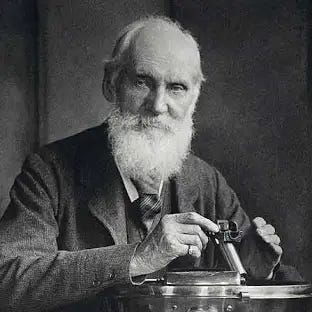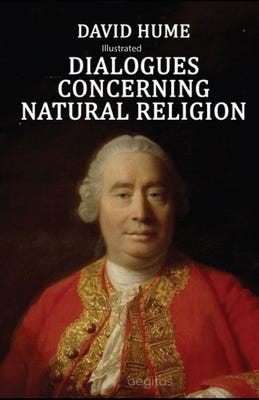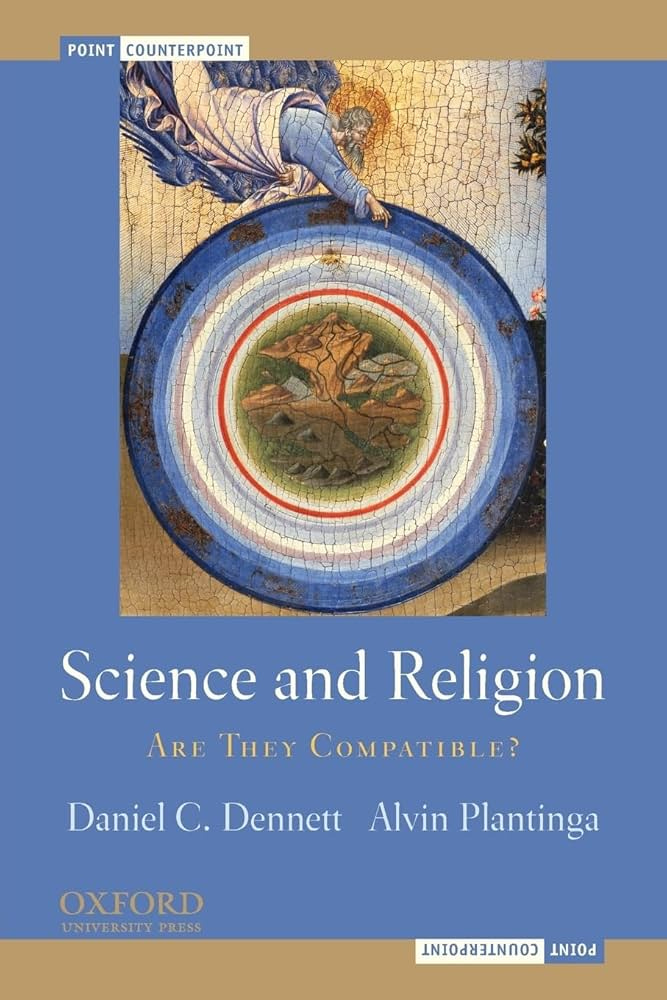In his book Where the Conflict Really Lies, philosopher and Christian apologist Alvin Plantinga sets out to demonstrate that, appearances notwithstanding, there is no real conflict between science and (theistic) religion. Sure, there are areas of superficial or apparent incompatibility, but underneath we find a deep concord. By contrast, Plantinga argues that the relationship between science and naturalism (the position that the supernatural does not exist) is exactly the other way around: an appearance of harmony on the surface, but a fundamental discord underneath. There is a veritable cottage industry of books purporting to demonstrate that, for one reason or another, science and religion are really in harmony. To a skeptical observer, the very frequency with which these books are published suggests that the appearance of conflict is a hard one to dispel. The book flap heralds Plantinga’s effort as “a long-awaited major statement” on a controversial question. Indeed, the University of Notre Dame professor stands in high repute among philosophers in the analytic tradition. If there’s any hope of averting the conflict between science and religion, it may well rest on someone with Plantinga’s credentials.
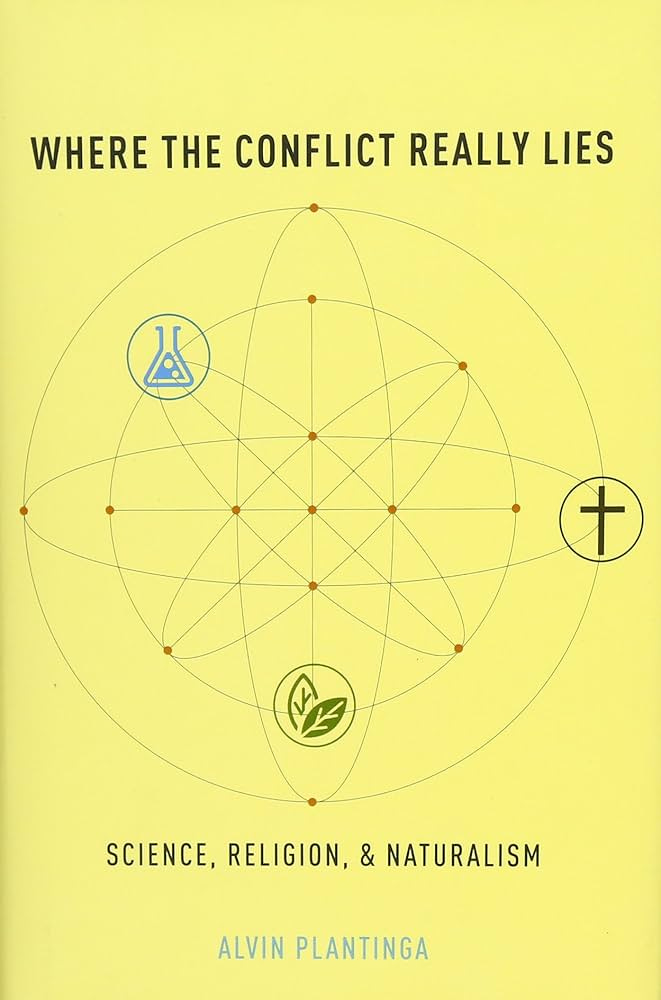
Unguided or misguided?
Plantinga argues that theism is not in conflict with evolutionary science, only with the notion of unguided evolution, which he regards as a metaphysical add-on, not a part of evolutionary theory proper. But what about the view, almost universally held among biologists, that the source of mutations in DNA is random? “Random” in this context does not mean based on pure chance, but rather without foresight or direction, meaning that mutations do not arise to serve the organism’s adaptive needs. According to Plantinga, random mutation is compatible with God orchestrating the whole process—it’s just God’s way of creating novelty. But there is no wedge to drive between “random” and “unguided”. If God is steering evolution in the right direction, making sure that suitable mutations arise, the mutations cannot be “random” in the technical sense, for then they would occur for the benefit of the organism (or whichever plan is on God’s mind).
This becomes clear when Plantinga, strangely enough, endorses creationist Michael Behe’s pseudoscientific argument from irreducible complexity. Behe’s argument is that the evolution of irreducibly complex systems requires the simultaneous occurrence of different beneficial mutations, which is exceedingly unlikely. Therefore, some intelligent designer must have monitored the development of such systems, if not by miraculous creation, then at least by bringing about the right mutations for natural selection to work on. But in that case, obviously, the mutations arise to meet the organism’s adaptive needs and no longer qualify as random. That’s the whole point of Behe’s argument. Anyhow, why doesn’t God skip the cruel selection part and create a whole population of well-adapted organisms without further ado?
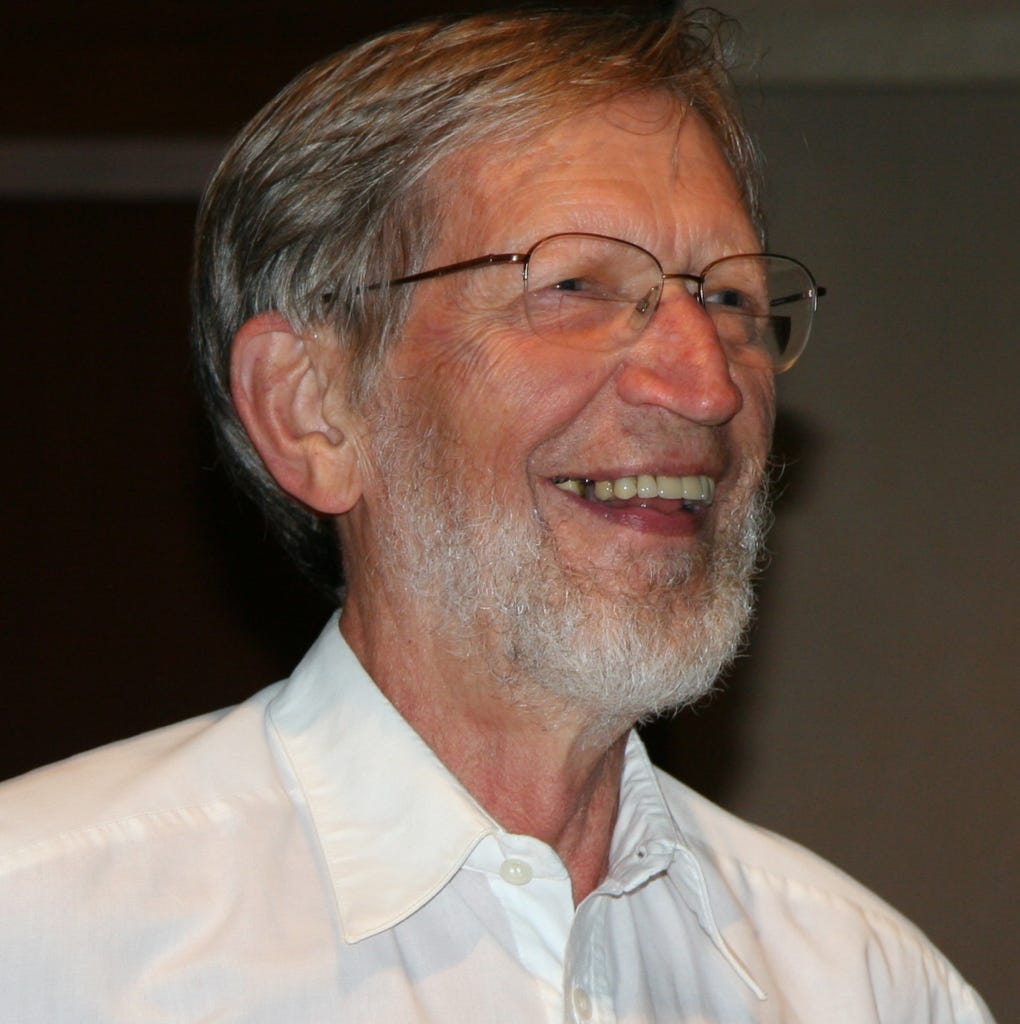
Logical possibility
The thesis that biological mutations are random and unguided is not an extra metaphysical assumption, as Plantinga would have it, but part and parcel of modern evolutionary theory, as demonstrated in countless experiments. If some intelligent agent is causing mutations behind the scenes, it seems that he/she/it is creating precisely the kind and rate of mutations that one would expect if the process were entirely undirected. So either Plantinga must be buying into creationist fantasies about “irreducible complexity” that have long since been discredited, or he is clinging to the excessively weak point about logical possibility. Yes, of course it’s logically possible that, despite all evidence to the contrary, evolution unfolds under supernatural guidance. But if the bar for rational belief is lowered to mere logical possibility, without any need for positive evidence, then all bets are off. Evolution—or gravity, plate tectonics, lightning, for that matter—could as well be secretly directed by space aliens, Zeus or the Flying Spaghetti Monster. I was going to include the devil in the list, but it turns out that Plantinga has no qualms about treating the Horned One as a serious explanation. There goes my reductio ad absurdum.
In a similar vein, Plantinga argues that the discovery by evolutionary psychologists that humans are prone to detect agents even where none are present does not in any way diminish the plausibility of cultural belief in invisible supernatural agents. Again, his argument never moves beyond the level of logical possibility. By the same token, the discovery of the ideomotor effect—subtle and uncontrolled muscle movements below the level of conscious awareness—does not undermine the belief that a Ouija board is really commanded by ghosts.

Did evolution have enough time?
Pretty much everything Plantinga writes on evolution is spectacularly ill-informed. He seems to imagine that he is the first to think about the “temporal constraints” imposed on evolution: has there been sufficient time in the history of the planet for complex adaptations to evolve? In Darwin’s time, estimates of the earth’s age were much lower than today, and scholars such as Lord Kelvin (William Thomson), estimating the earth to be between 24 million and 400 million years old, thought this posed a serious problem to Darwin’s theory. There just wasn’t enough time available for all the adaptive complexity and diversity to evolve.
Nowadays, we know that the earth is much older than Lord Kelvin imagined (he didn’t take into account radioactivity and made other calculation errors). Now that we have a better picture of the fossil record and better dating methods, it is clear that there has been plenty of time for even the most intricate adaptations to evolve. If we are to believe Plantinga, however, no evolutionary biologist has ever carried out the relevant “calculations” and the whole bunch of them are merely relying on “feelings and guesses”. This is patently untrue. In 1994, Nilsson and Pelger calculated that the time needed to evolve a camera eye from a simple light-sensitive patch—ironically Plantinga’s own example—is in the range of a few hundred thousand years, not more than a blink in the eye of deep time. Maybe Plantinga should read Evolution’s Witness: How Eyes Evolved, in which the ophthalmologist Ivan Schwab documents the evolution of eyes in meticulous detail and with lavish illustrations. Like Intelligent Design advocates before him, Plantinga blithely ignores the substantial body of scientific work reconstructing the evolution of complex adaptations, as well as computer simulations demonstrating the evolvability of such systems in reasonable time spans.
In a remarkable bout of irony, Plantinga trots out Bertrand Russell’s famous teapot against evolutionary biologists, arguing that “mere possibility claims are not impressive”. In his thought experiment, Russell asked us to imagine a celestial teapot orbiting the sun, so tiny and far away that it is invisible even to our best telescopes. Although we cannot disprove the existence of such a teapot, that does not make its existence any more plausible. The burden of proof rests on those who put forward unfalsifiable hypotheses, be it teapots or deities. Plantinga doesn’t quote Russell in full, but it is worth doing so:
Many orthodox people speak as though it were the business of sceptics to disprove received dogmas rather than of dogmatists to prove them. This is, of course, a mistake. If I were to suggest that between the Earth and Mars there is a china teapot revolving about the sun in an elliptical orbit, nobody would be able to disprove my assertion provided I were careful to add that the teapot is too small to be revealed even by our most powerful telescopes. But if I were to go on to say that, since my assertion cannot be disproved, it is intolerable presumption on the part of human reason to doubt it, I should rightly be thought to be talking nonsense. If, however, the existence of such a teapot were affirmed in ancient books, taught as the sacred truth every Sunday, and instilled into the minds of children at school, hesitation to believe in its existence would become a mark of eccentricity and entitle the doubter to the attentions of the psychiatrist in an enlightened age or of the Inquisitor in an earlier time.
If only Plantinga would keep the celestial teapot in mind while writing about his invisible mutation tinkerer.

Divine intervention
Plantinga argues against the hands-off conception of God that is currently in vogue among sophisticated theologians. Divine miracles are perfectly possible, Plantinga claims, because nothing prevents God from suspending the natural order and intervening in the world. But even if we grant that supernatural intervention is logically possible, the conflict between science and religion strikes back with a vengeance: there is not a shred of evidence for supernatural interventions, and plenty of failed attempts to find such evidence. But that mighty elephant in the room receives no attention from Plantinga, who instead belabors the logical possibility of miracles with a 60-page digression into different interpretations of quantum physics and lots of fancy formalizations.
At this point we’re no longer talking about a conflict between science and religion, but one between theology and more theology. This is a recurring theme in the book: instead of dealing with the real areas of conflict between science and religion, Plantinga just wastes the reader’s time with rearguard fights against other theologians.
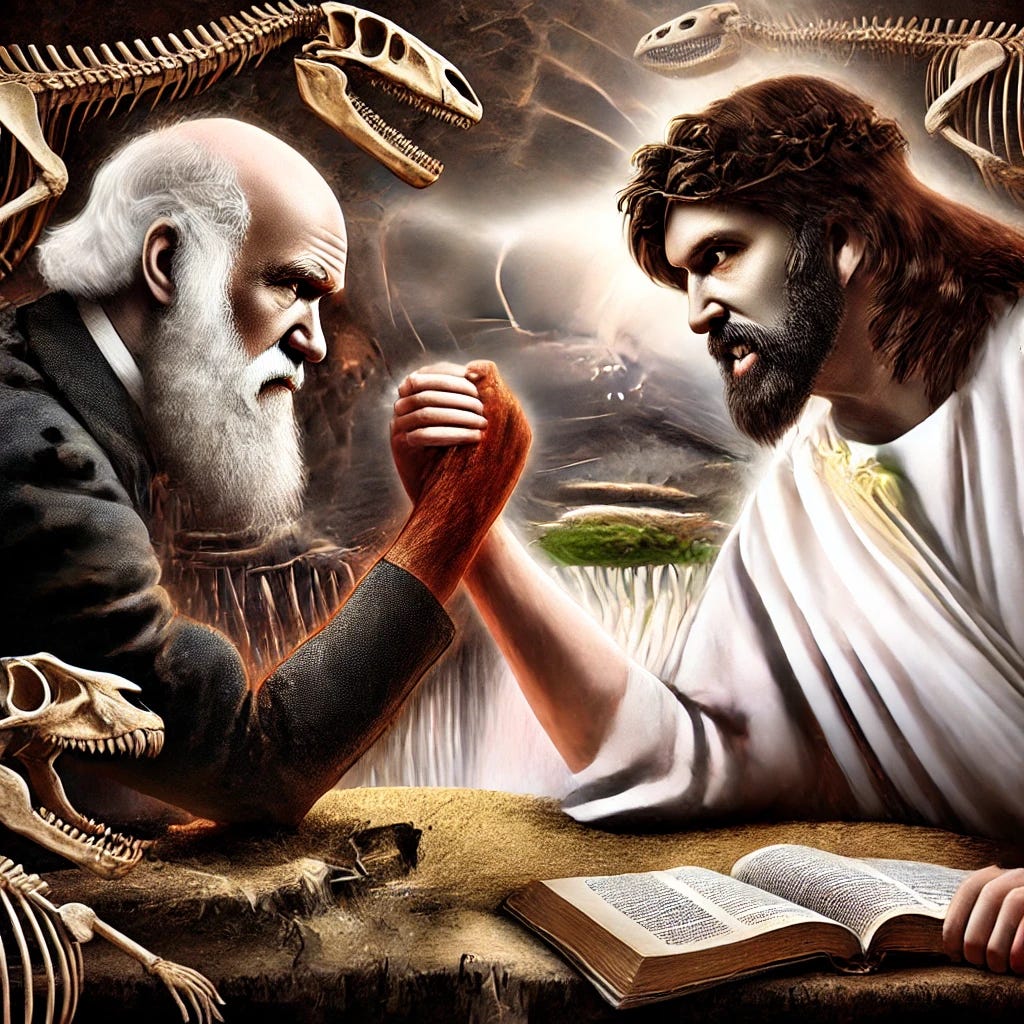
The problem of evil
The spectacle of an avowed theist wrestling with the problem of evil is invariably fascinating and often disquieting. Richard Swinburne, another eminent analytic philosopher and theist, once suggested that God allowed the Holocaust to happen as a wonderful opportunity for the Jews to be courageous and noble. What does Plantinga have in store? First, he argues that Lord Tennyson already knew that nature is “red in tooth and claw”, so we didn’t have to wait for Darwin to tell us that. Even if that were true, however, it does nothing to diminish the force of the original problem. It would be like an attorney arguing that the evidence against his client is already so incriminating that one more witness who saw the murder with his own eyes won’t make a difference.
In any case, Plantinga misses the point. As Philip Kitcher has noted, death and suffering provide the very fuel for the engine of natural selection, the main creative force of evolution. The evolutionary road towards Homo sapiens is paved with death, hunger and suffering. Why would an omnipotent and compassionate creator rely on such a cruel and wasteful process? According to Kitcher, the whole idea that the ultimate goal of evolution was the emergence of a single species receptive to God’s revelation “rings hollow” in the face of the millions years of suffering and death preceding it. To which Plantinga retorts by quoting the book of Genesis: “there is nothing in Christian thought to suggest that God created animals in order that human beings might come to be”. That’s hardly surprising, as there’s nothing in the Bible to suggest any form of common descent whatsoever.
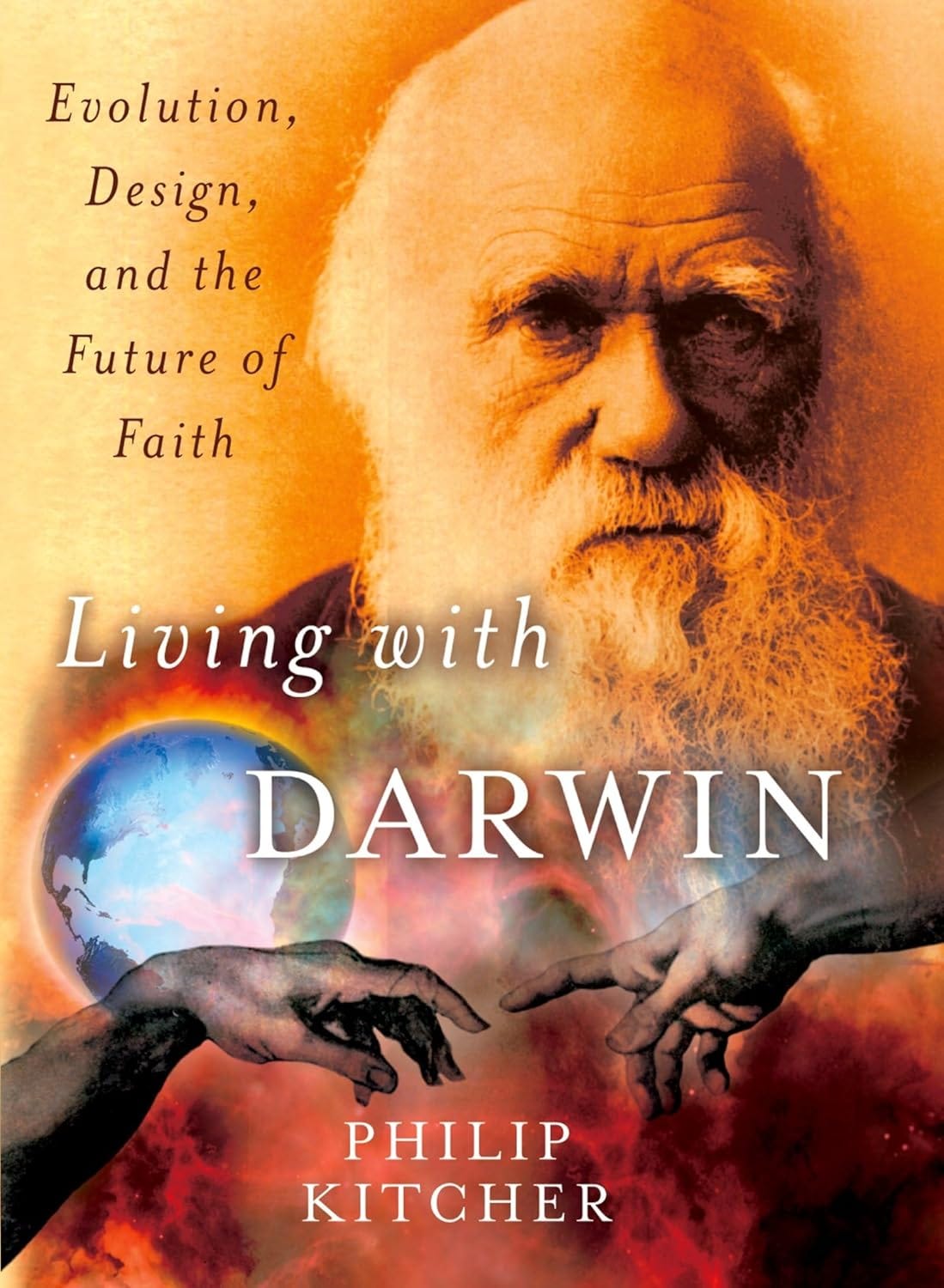
If anything, Plantinga’s solution makes the problem even worse, rendering the suffering of non-human animals even more pointless. If animals evolved for their own sake and not for the sake of the biped ape that was given “dominion” (Genesis 1:28) over them, why did they deserve to suffer for millions of years? Recall that, if we are to believe Plantinga, it was God himself who brought about the requisite mutations for the flagellum of syphilis bacteria, or the fangs and venom of the rattlesnake.
Plantinga’s second reply to the problem of evil is as preposterous as it is callous: the inordinate amount of death and suffering is a good thing because it allows us better to appreciate the monumental significance of Christ’s crucifixion:
“any world that contains atonement will contain sin and evil and consequent suffering and pain. Furthermore, if the remedy [i.e. Christian atonement] is to be proportionate to the sickness, such a world will contain a great deal of sin and a great deal of suffering and pain”
But why stop there? Shouldn’t theists like Plantinga be praying for another Holocaust once in a while then, by way of bringing glory to the divine remedy for evil? Will any amount of suffering satisfy the creator’s grandiose and narcissistic scheme of redemption? Come to think of it, does Plantinga think it’s morally wrong to prevent or relieve suffering, because doing so would interfere with God’s wonderful plan of salvation? Note that this is a book in which the author simultaneously claims to know why God created millions of different beetle species, but not why he permitted the extermination of six million Jews.
Bible-thumping
Explaining his views on the Bible, Plantinga informs us that what God tells us in the Bible is “certainly true and to be accepted”, but that it may be “hard indeed to see what he is teaching.” In other words, the Bible is always right, regardless of what it means. Having arrived at this point, the reader will no longer be surprised to learn that Plantinga does not see evolutionary psychology or Biblical scholarship as undermining Christian belief. From the seemingly innocuous claim that Christians conduct inquiry with a different set of beliefs, and deftly using the ambiguous term “knowledge base” as a semantic fulcrum, Plantinga arrives at the conclusion that Christians possess a “source of knowledge” not available to non-religious believers. Before you know it, non-Christian physics is “truncated” owing to its leaving out of Christ.
This is such an easy trump card that even Plantinga does not seem altogether convinced. After all, why would he bother to insist that unguidedness is not a proper part of evolutionary science, if all it takes to resolve the conflict between science and religion is to “enrich our knowledge” base with the proposition “God created the living world”? As if to assure the reader that not anything goes on his account, Plantinga gives the example of satellite photographs undermining the Biblical belief that the earth is the stationary center of the universe. But he never succeeds in explaining the epistemological difference between, say, classical young-earth creationism and his own brand of Intelligent Design creationism. He is simply reckoning that his readers will find the notion of a flat and 6000-year old earth sufficiently absurd as to believe (charitably) that his philosophical approach is guarded against it. In fact, all this shows is that Plantinga’s subjective tolerance of absurdity differs from that of the next person.

Vanishing point
In much of what passes as “sophisticated theology” today, the term ‘God’ does no explanatory work at all, but functions as a sort of vanishing point, a bundle of explanatory loose ends. God is simply equated with the uncaused cause, the Ground of Being, as that-which-does-not-require-further-explanation. Plantinga plays his own variation on that theme, claiming that theism “provides a natural explanation” of the existence of scientific laws and natural regularities in the universe. But it does nothing of the kind. God can only guarantee cosmic regularity if one assumes that God is a dependable fellow to start with. What reasons do we have, short of definitional non-starters, to think that God will not act capriciously and unpredictably? This is especially true of Plantinga’s God, who can interfere at will in his creation and violate the natural order.
Plantinga is impressed by the fact that the kinds of mathematics that are useful for understanding the universe are extremely challenging for humans, though just manageable for the smartest among us. Is God trying to find out how far he can push us? Are we like those lab rats trying to find their way out of a maze, with God monitoring the cosmic experiment?
There is an obvious self-selection effect that Plantinga ignores. If understanding some part of the universe would require mathematics that are too complicated for human brains to comprehend, we would never be able to gauge the depths of our own ignorance, because by definition we would never be in possession of those super-human mathematics. It is possible that modern physics is about to run up against human cognitive limits. The mathematics of string theory and M-brane theories are so arcane that they challenge the minds of even our most gifted scientists, and are totally baffling to common sense. It seems that the farther we move away from the environment in which our ancestors lived, the more bizarre and counterintuitive the world appears to us. This is exactly what one would expect from a brain that is the product of evolution by natural selection.
The vacuity of Plantinga’s theism becomes even clearer when he claims that both the complexity and the relative simplicity of the world count in God’s favor. Under naturalism, he claims, there is no good reason to “expect the world to conform to our preference for simplicity”. But in fact, philosophers of science have developed probabilistic justifications for simplicity in theories. Plantinga wonders why we don’t live in a world where our most complex theories, rather than our most simple ones, are scientifically successful, but the question is misguided. Complexity comes with a probabilistic penalty, which means that, all other things being equal, complex hypotheses are less likely to be true than simple ones. Intuitively, the more complex you make your theory, the more ways in which it can go awry. Preferring simple theories is thus rational, regardless of how complex the universe is.
This book abounds in fallacies and non sequiturs, and I can’t list them all here. Here’s another one. In his Dialogues concerning natural religion, the Scottish philosopher David Hume presented several alternative hypotheses to theism, for example the idea that the world was created by a consortium of gods, or an evil demon, or by a young and inexperienced deity. Plantinga’s response to Hume is a blunt argumentum ad populum: we theists are in the majority, so we can call the shots. And so we learn that theists like Plantinga have more “freedom” when they want to explain complex adaptations, because they can “follow the evidence wherever it leads”: maybe it’s evolution, maybe it’s God. That would be like saying that a believer in Bigfoot has more “freedom” than a skeptic when trying to account for strange footprints in the woods.
Is naturalism self-defeating?
In the final chapter, Plantinga mounts his infamous warhorse against evolutionary naturalism, which basically argues that the theory is self-defeating. Evolution, so goes the argument, cares only about survival and reproduction, not about truth. You can probably see where this is going. If you are an evolutionary naturalist, then you must believe that your own cognitive faculties are the products of blind evolution, which means that you cannot trust your own beliefs, including (aha!) your belief in evolutionary naturalism itself. Theism is the only way out of this vicious circularity, argues Plantinga. From where he’s standing, our cognitive faculties are trustworthy just because our benevolent Creator has ensured that they are, so that we can get to know Him.
In their debate book, the philosopher Daniel Dennett has already made short shrift of Plantinga’s circular and self-serving argument against naturalism. In the new version in this book, Plantinga first makes a long and irrelevant detour into several strands of naturalism (reductive and non-reductive materialism), and couches his arguments in highly technical formalizations that don’t serve any discernible purpose except to bamboozle the reader.
Much is made of the trivial observation that survival, for an organism, does not always require belief. Well of course it doesn’t. Tardigrades and clams and bacteria—or so I’ve heard—have been thriving for millions of years without it. From that bland-sounding premise, Plantinga proceeds to slide into the claim that activities such as finding mates and fleeing predators “do not require true belief” (my italics). The crux is in the italics. There is a huge difference between claiming that an organism doesn’t need belief for survival (and a fortiori not true belief), and claiming that, if it relies on belief for survival, it needn’t be true belief. Compare: “If I want to go to the city, I don’t need a car. After all, I can take my bike. So I don’t need gasoline to go to the city. So in order to drive my car to the city, I don’t need gasoline.”
For those organisms that rely on belief as an adaptive strategy to navigate the world, these beliefs had better be (approximately) true ones. Plantinga pretends that natural selection is blind to the content of our beliefs, but of course it isn’t. Beliefs are levers for action, which means that natural selection tends to weed out neural structures that give rise to false beliefs, since those are usually not conducive to survival and reproduction. We have also evolved brain mechanisms for learning, i.e. modifying our beliefs so as to bring them into greater accord with reality. Again, any learning mechanism that is patently irrational will be weeded out by evolution. As the philosopher Willard van Orman Quine memorably put it: “Creatures inveterately wrong in their inductions have a pathetic but praiseworthy tendency to die before reproducing their kind.”
Why does Plantinga think that natural selection is blind to the content of our beliefs? Bizarrely, he thinks that the neurophysiological properties of a belief stand to its content as a ball shattering a window stands to its being a birthday present—the content is completely irrelevant. Does a ball break a window “by virtue of being a birthday present”, asks Plantinga rhetorically? Of course not: some balls are not birthday presents, and some birthday presents are not balls but rather, say, stuffed animals, which usually don’t break glass. The property of being a birthday present is not causally connected to its mass or hardness and is thus irrelevant. What on earth is Plantinga trying to prove here?
Brain surgery with an ax
There is a fascinating discussion in philosophy and evolutionary psychology about the reliability of our cognitive faculties and their flaws and limitations, all informed by an evolutionary perspective. But these questions should be tackled in a careful and piecemeal fashion, not, as Plantinga does, by compressing all the complications and details in one single proposition R (“our cognitive faculties are reliable”) and confusing such a rigid all-or-nothing approach with logical rigor.
Sometimes this excessive formalism results in unintended humor. For example, at the very end of the book, Plantinga asks us to consider the “faculty (or subfaculty) that produces metaphysical beliefs”, and to call it M (Has it been found on a brain scanner yet?). He then goes on present the following pretentious formalization, with N standing for Naturalism and E for Evolution,
“What is P(MR/N&E), where MR is the proposition that metaphysical beliefs are reliably produced and are mostly true?”
This is the philosophical equivalent of doing brain surgery with an ax.
More generally, the constant use of pseudo-rigorous formalizations and logical sleight of hand are the most irritating aspects of this book, exemplifying the very worst in the tradition of analytic philosophy. At some point Plantinga pretends to have proven that determinism is “necessarily false”. You can see that the formalization of determinism he starts out with is obviously wrong, but it takes a while to figure out what is going on. In this particular case, the trick is pulled off with two nested conditionals in the first premise. At that point, the rabbit is already smuggled in the magician’s hat, and what follows is just formalistic window dressing to confuse the reader. Formalization can be a means to provide clarity and rigor to an argument, and thus to enhance a philosophical debate. Alas, it can also be misused as a rhetorical ploy to disguise fallacies under a tapestry of symbols.
What is the upshot of this book? It is, in Plantinga’s own words, that theism is “vastly more hospitable to science than naturalism” and that this belief in an invisible creator “deserves” to be called “the scientific worldview” (no worries about “metaphysical add-ons” this time). This is sheer rhetorical bluster. Evolutionary naturalism emerges unscathed from Plantinga’s attack, and he has done nothing that comes even close to resolving the conflict between science and religion. This book will not impress anyone except those who were already convinced that science and theism are perfectly compatible, and even in those quarters, it seems to have put some people off. It is embarrassing that one of the world’s foremost analytic philosophers can get away with such sophistry and special pleading, published by Oxford University Press no less. If this is the best that sophisticated theists can come up with, God is in very dire straits indeed.
[A more academic version of this piece appeared as a review essay in the journal Science & Education]
